Over the years, researchers have documented many positive impacts veganism brings to the table, including individual and public health, animal welfare, and even the fashion industry.
However, the vegan diet isn’t without its challenges, especially in social life.
In the wake of the pandemic, Reddit user Zealousideal_Lime_66 agreed to babysit her brother’s girls while he and his wife enjoyed a rare weekend together. Everything was going well, but there was one problem: her nieces wouldn’t eat the woman’s food.
So, she fed them frozen pizzas, burgers, and other easily available options—something their father was not happy about when he found out.
RELATED:
Watching over kids whose diet is nothing like yours can be more challenging than it seems
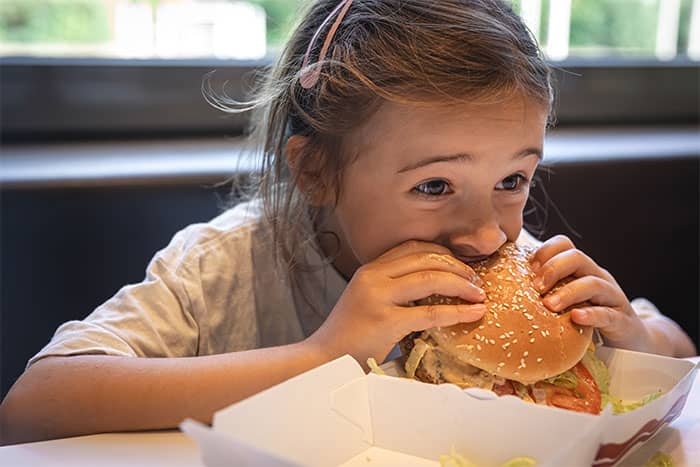
Image credits: puhimec / Envato Elements (not the actual photo)
Even when they’re family
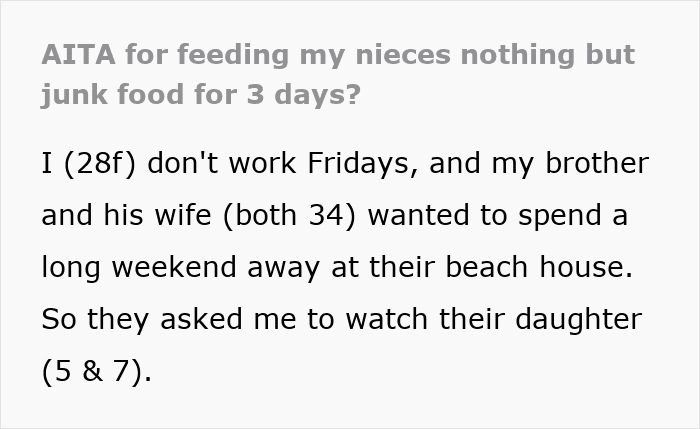
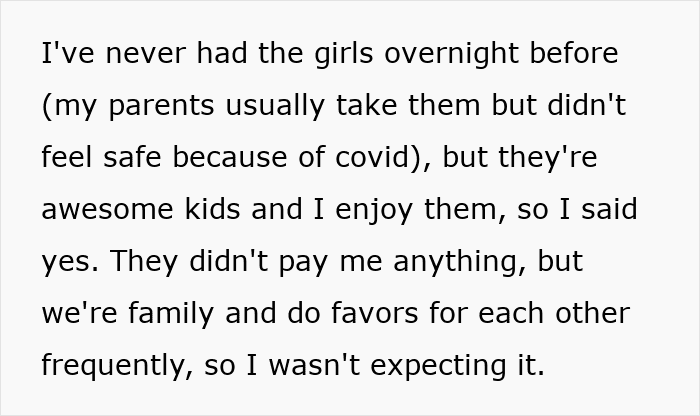
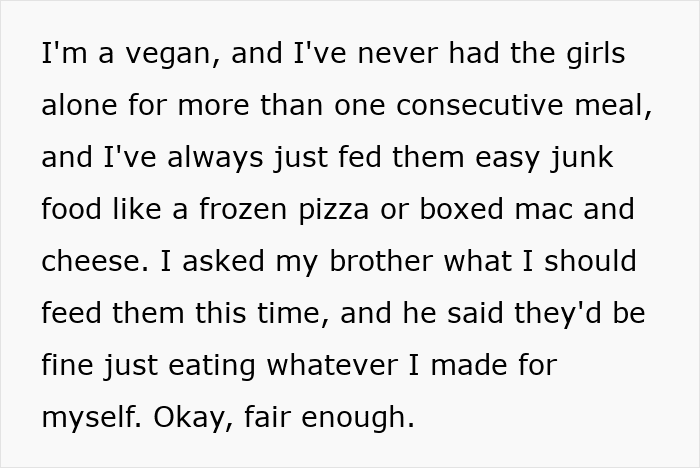


Image credits: Olavi Anttila / Pexels (not the actual photo)


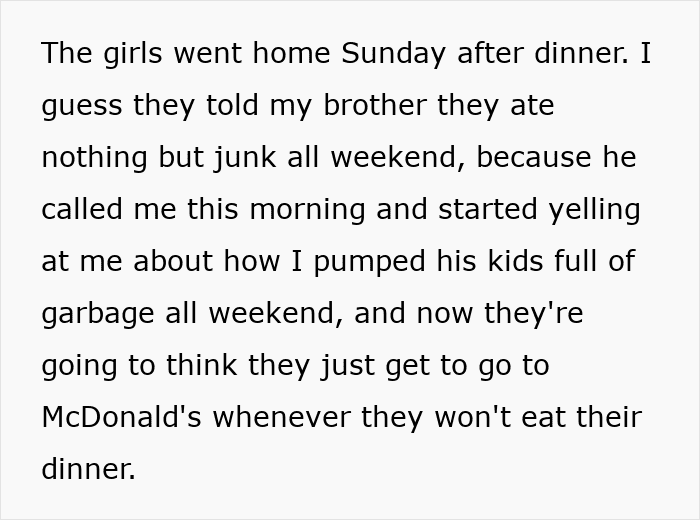

Image credits: benzoix / Freepik (not the actual photo)


Image credits: Zealousideal_Lime_66
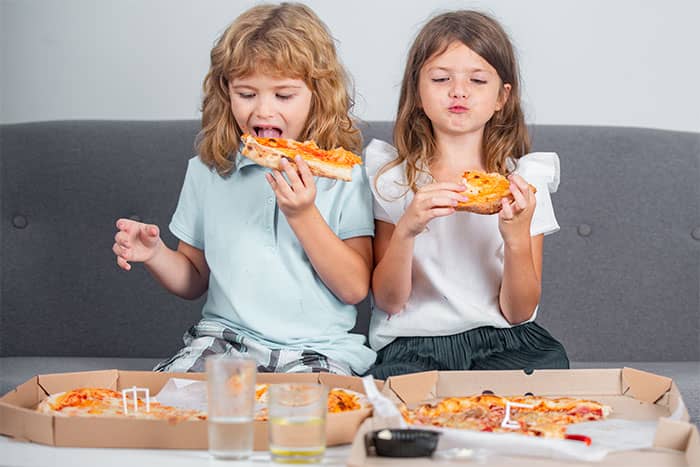
Many kids are, indeed, eating too much junk
Children and teens in the U.S. do get a majority of their calories from ultra-processed foods like frozen pizza, microwavable meals, chips, and cookies, a study published in 2021 found.
According to the paper, two-thirds—or 67%—of calories consumed by children and adolescents in 2018 came from ultra-processed foods, a jump from 61% in 1999. The research, which analyzed the diets of 33,795 youths ages 2 to 19 across the country, noted the “overall poorer nutrient profile” of the ultra-processed foods.
“This is particularly worrisome for children and adolescents because they are at a critical life stage to form dietary habits that can persist into adulthood,” said Fang Fang Zhang, the study’s senior author and a nutrition and cancer epidemiologist at Tufts University’s Friedman School of Nutrition Science and policy. “A diet high in ultra-processed foods may negatively influence children’s dietary quality and contribute to adverse health outcomes in the long term.”
Zhang said a possible reason for the increase may be the convenience of ultra-processed foods—industrial processing, such as changing the physical structure and chemical composition of foods, not only gives them a longer shelf life but also a more appetizing taste.
“Things like sugar, corn syrup, some hemp oil and other ingredients that we usually don’t usually use in our kitchen, that are extracted from foods and synthesized in the laboratory, those are being added in the final product of ultra-processed foods,” Zhang explained. “A purpose of doing this is to make them highly palatable. So kids will like those foods that somehow make it hard to resist.”
So, it’s really cool that the girls’ dad is trying to get them to eat healthy. Not that many do: during the same two-decade period when the study data was collected, the consumption of unprocessed or minimally processed foods decreased to 23.5% from 28.8%. However, if the slip-up was just one weekend long, is it actually worth damaging the relationship you have with your sister?

But it was just for a few days, and the aunt did babysit the girls for free
After all, she’s a valuable resource. A few decades ago, paying your family for watching your kids may have sounded like a ridiculous idea. But, as the child care landscape grows more expensive and difficult to navigate, more and more parents are turning to grandparents, aunts, uncles, and other relatives for care they originally would have sought from a babysitter, nanny, or daycare.
“You have to think about the financial implications of all involved,” said therapist and life coach Abbey Sangmeister. “The amount of hours, what is expected during that caregiving time, acknowledging there is labor involved in caring for children, is the first step to having a successful relationship.”
As Sangmeister explained, lifestyle and community have changed over the years. “Generations ago, it was a village that helped care and raise children,” she said. “We are seeing less of this, and parents are struggling.” Add to that the rising cost of child care and a growing understanding of just how much labor is involved in caring for kids, and you get a completely different picture.
In 2024, the average two-child family spent $332 on an after-school sitter per week for 15 hours of work. Maybe a few pizzas and chicken nuggets aren’t that bad?
Most of the people who read the woman’s story didn’t think she did anything wrong
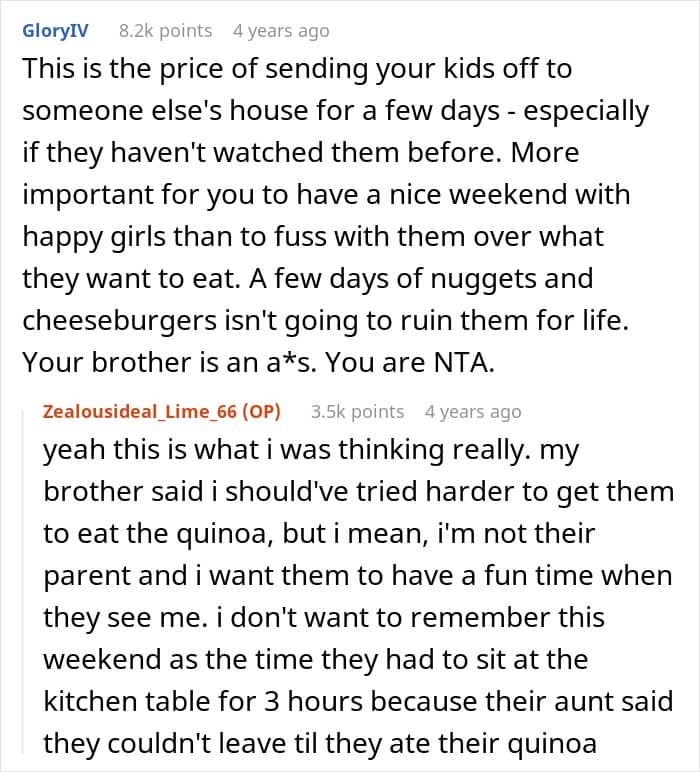
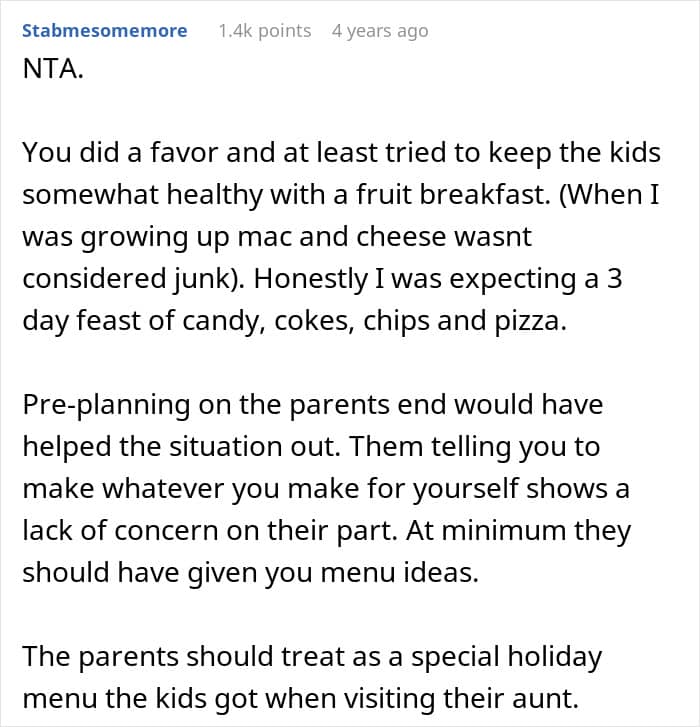







But a few said she could’ve been more accommodating
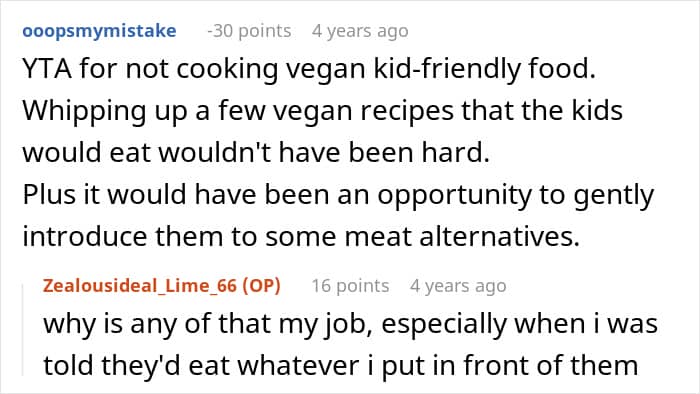
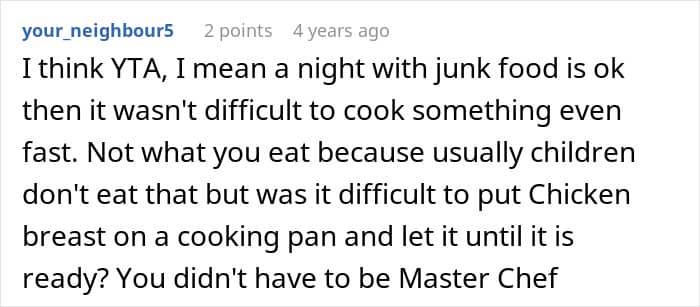
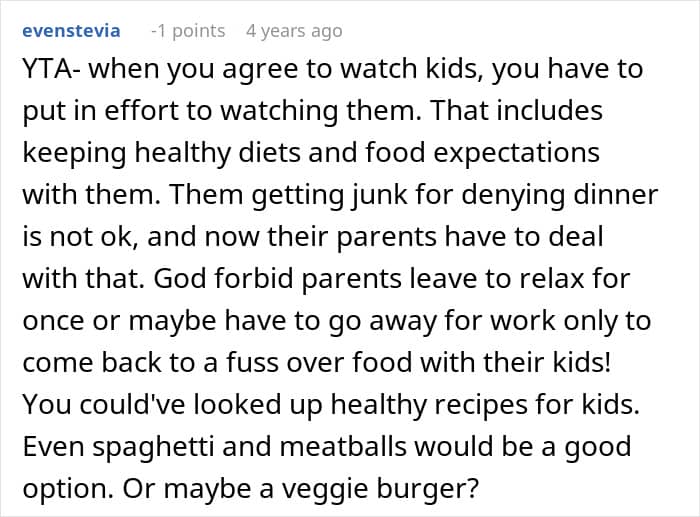
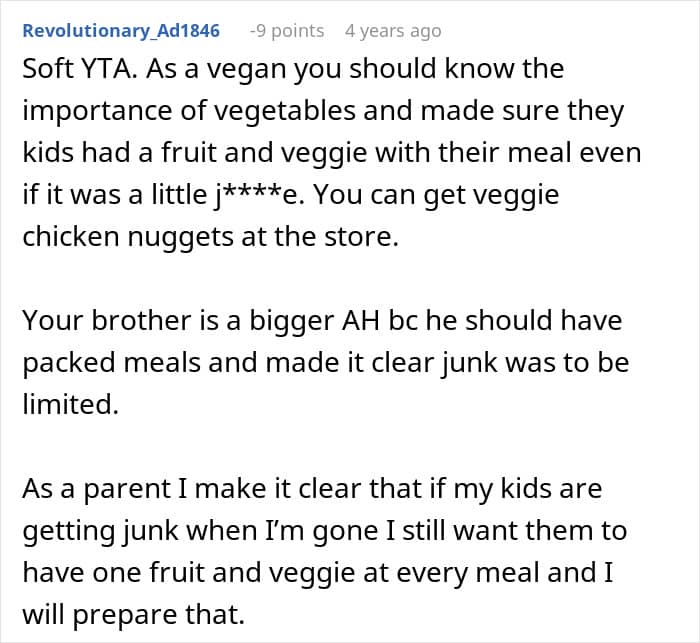
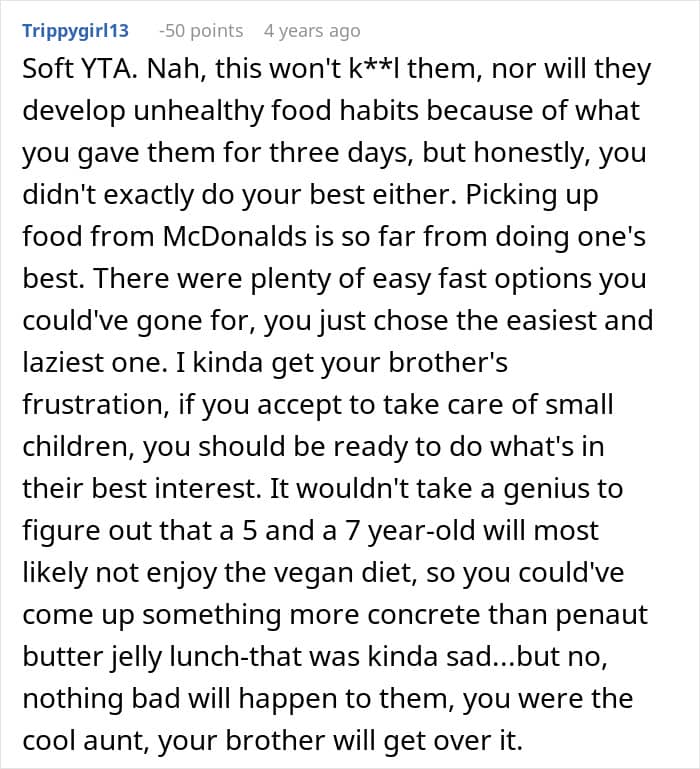
Some even thought that everyone involved could’ve navigated the situation better
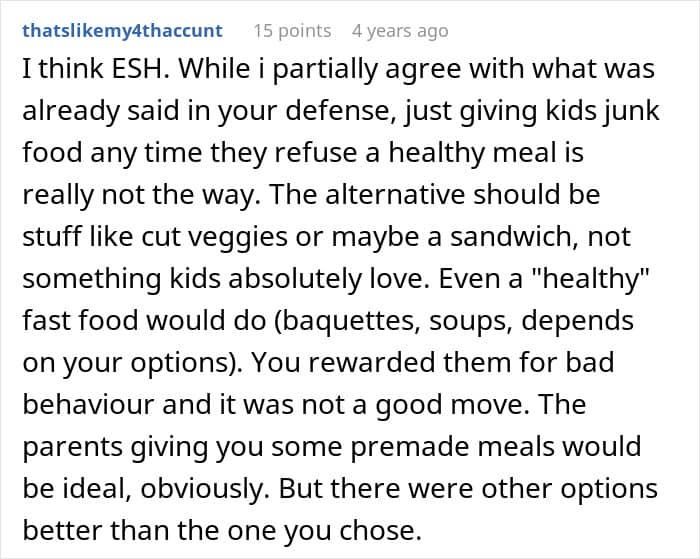

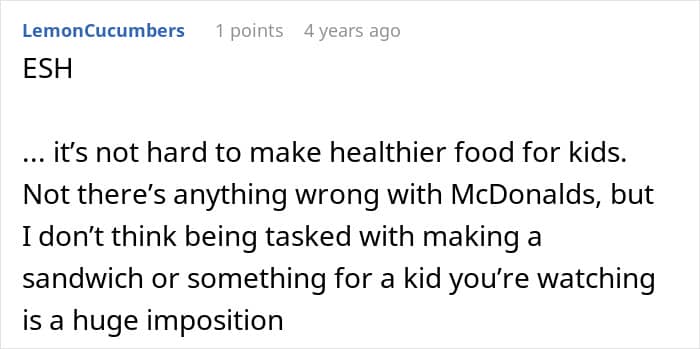
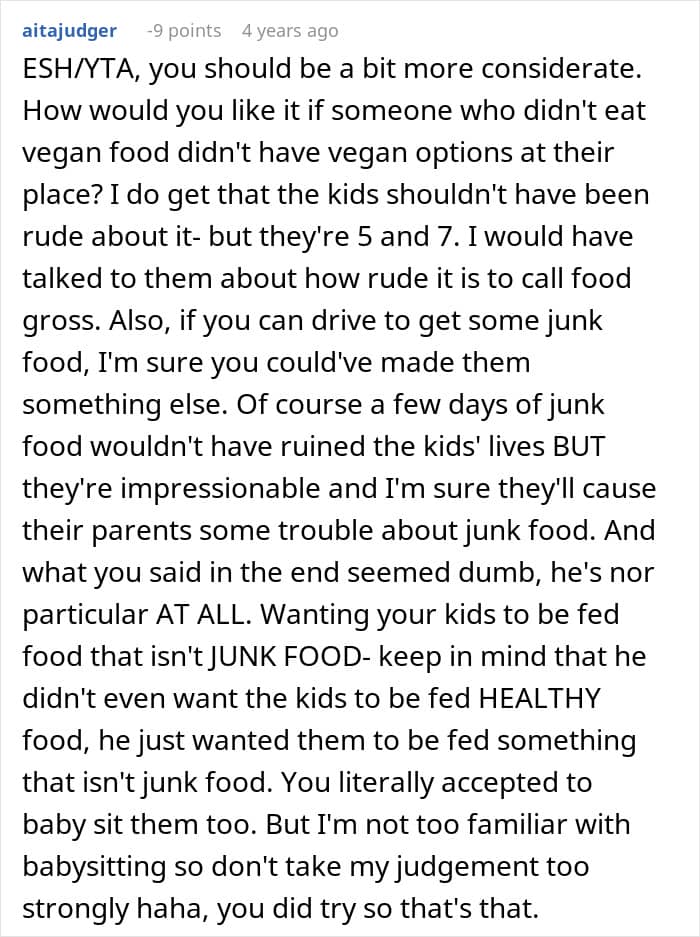


Soon after, the woman released an update on the conflict

Image credits: Andrej Lišakov / Unsplash (not the actual photo)



Image credits: Zealousideal_Lime_66